During the 2007-2008 school year, Urban Sprouts planned to reach 500 students in the 6th through 12th grades at five San Francisco public schools serving the city’s most under-served neighborhoods.
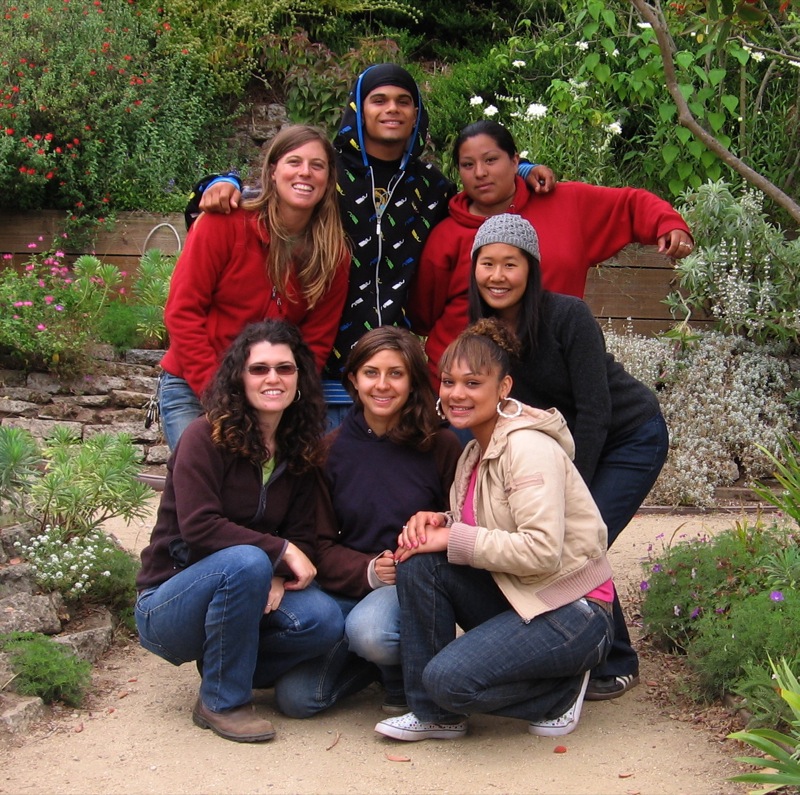 Urban Sprouts greatly surpassed this goal, reaching a total of 728 students this year. Urban Sprouts partnered with five schools: Aptos Middle School, Excelsior Middle School, Martin Luther King Jr. Academic Middle School, June Jordan School for Equity, and Ida B. Wells Continuation High School. These schools serve San Francisco neighborhoods including the OMI/Excelsior, Sunnydale, Visitacion Valley, Portola, Bayview-Hunters Point, and Western Addition. Of students reached, 64% were low-income students, 96% were youth of color, and 52% were defined as educationally disadvantaged by the San Francisco Unified School District.
Urban Sprouts greatly surpassed this goal, reaching a total of 728 students this year. Urban Sprouts partnered with five schools: Aptos Middle School, Excelsior Middle School, Martin Luther King Jr. Academic Middle School, June Jordan School for Equity, and Ida B. Wells Continuation High School. These schools serve San Francisco neighborhoods including the OMI/Excelsior, Sunnydale, Visitacion Valley, Portola, Bayview-Hunters Point, and Western Addition. Of students reached, 64% were low-income students, 96% were youth of color, and 52% were defined as educationally disadvantaged by the San Francisco Unified School District.We provided the following activities at our five school sites:
In class Garden-based Education. Over 688 students participated in Urban Sprouts’ core garden-based education
 program that takes place during science classes. The garden-based classes meet for one hour every other week throughout the school year for a total of 20 hours of participation for every student. Each session is led by the Garden Educator and includes interactive academic learning and garden work. Every student experienced the full process of planting, growing, harvesting and eating crops from the school garden at least three times during the school year. By participating in the entire process, students have strengthened their ecoliteracy and environmental responsibility.
program that takes place during science classes. The garden-based classes meet for one hour every other week throughout the school year for a total of 20 hours of participation for every student. Each session is led by the Garden Educator and includes interactive academic learning and garden work. Every student experienced the full process of planting, growing, harvesting and eating crops from the school garden at least three times during the school year. By participating in the entire process, students have strengthened their ecoliteracy and environmental responsibility.An additional 18 high school students at June Jordan School for Equity participated in a semester-long elective course focused entirely on sustainable agriculture and food production. This garden-based curriculum included weekly lessons that took place in the school garden, curriculum on nutrition, food production, distribution and marketing, food policy, farm economics, and the environmental impact of agriculture, as well as a farm field trip to Hidden Villa Ranch in Los Altos, California.
Garden-based Youth Leadership. We partnered with teachers and students to identify leadership opportunities for smaller groups of students, to engage more intensively with the garden and to lead related school-wide activities. These opportunities involved 15 students:
- Excelsior Middle School: Seven students in Urban Sprouts’ after school program created, implemented and evaluated a school-wide recycling program. Students led a waste diversion campaign that included posters, monitoring recycling bins at lunch, and calculating the school’s waste diversion percentage, with support from San Francisco’s Department of the Environment.
- Martin Luther King, Jr. Middle School: Eight students in Urban Sprouts’ after school Garden Club conducted an Earth Day awareness campaign. Students from all of MLK’s 6th and 7th grade classes decorated paper shopping bags with messages about Earth Day and about reusing and recycling waste materials. The after school Garden Club brought the bags to a local supermarket on Earth Day and gave them out to shoppers to reuse for their shopping.

Summer Program. For the second summer, Urban Sprouts partnered with the Garden for the Environment (GFE) to host a two-week summer program for 21 youth, meeting for four hours each day at the GFE. Urban Sprouts trained and supervised 5 high school students who served as staff for the 16 middle school-aged participants. The Summer Program included: daily garden work; an intensive curriculum on gardening, waste diversion, nutrition and sustainable agriculture; daily harvest and preparation of a healthy lunch, and the creation of a culminating event in which youth shared their learning with their families and friends and created take-home actions to apply their learning at home (examples included kits for home recycling, composting, and gardening).
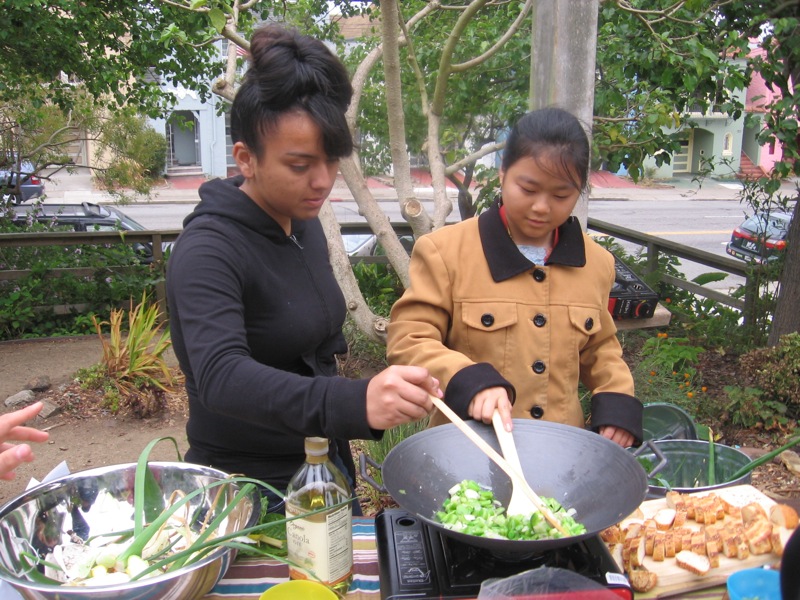 Family Programming. Our school partners identified increased parent engagement as a major goal, and
Family Programming. Our school partners identified increased parent engagement as a major goal, and 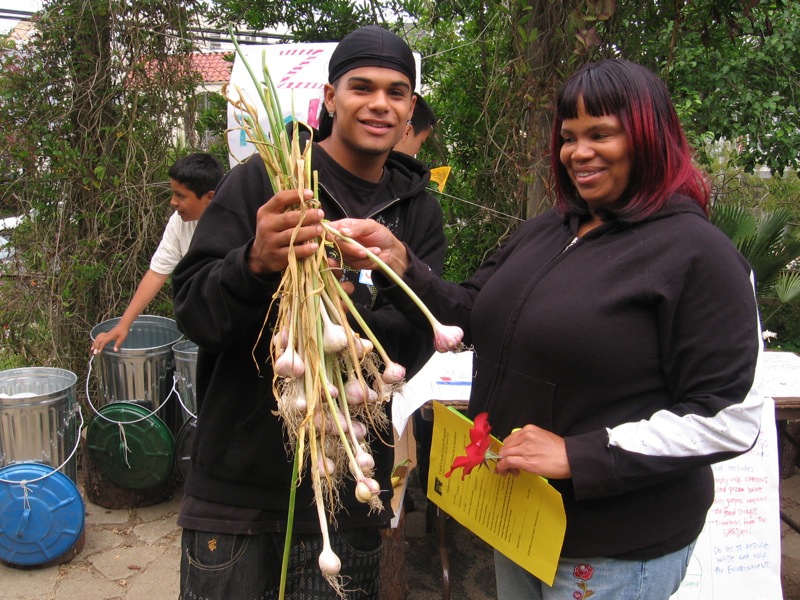 encouraged Urban Sprouts to utilize the school garden for this purpose. In addition, changes in youth attitudes and behaviors of environmental responsibility achieve greater impact with parent support and reinforcement at home. Urban Sprouts participated in three school-wide events for parents and held twelve meetings and workshops, engaging 63 school parents with the school garden and with cooking projects using garden-grown produce.
encouraged Urban Sprouts to utilize the school garden for this purpose. In addition, changes in youth attitudes and behaviors of environmental responsibility achieve greater impact with parent support and reinforcement at home. Urban Sprouts participated in three school-wide events for parents and held twelve meetings and workshops, engaging 63 school parents with the school garden and with cooking projects using garden-grown produce.Due to feedback from school parents, we are redesigning the format of this program. During the next school year, family programming will include family garden plots within school gardens, in which families will showcase cultural gardening practices while producing food for their own consumption. The new garden plots will be installed in October 2008 with support from Clif Bar.
School Farm and Food Connection.
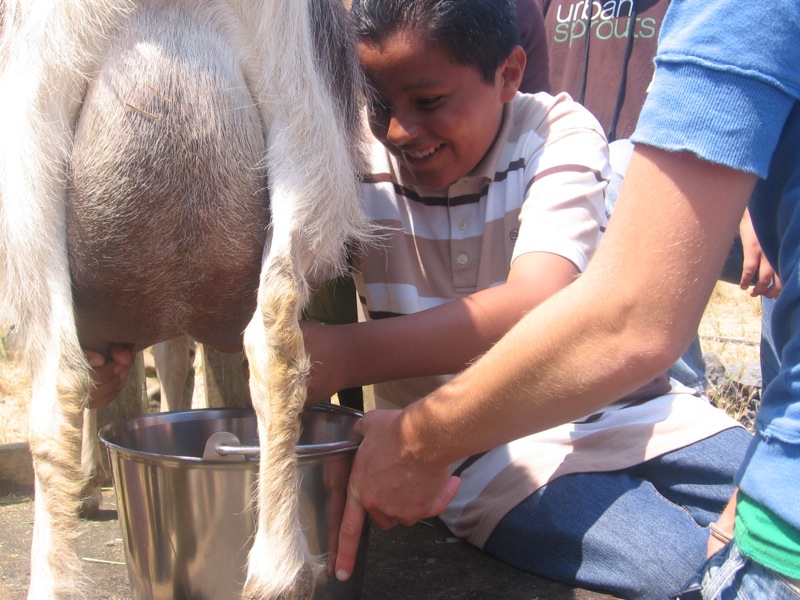 In order to connect the school community to local farms and healthy food options, Urban Sprouts took four groups of students on farm field trips to Hidden Villa Ranch in Los Altos, California and to Slide Ranch in Muir Beach, California. In addition, we helped students and parents at Excelsior Middle School to design and practice preparing healthy meals made from fresh produce, so the group could prepare these meals while traveling on a school field trip to Washington, DC. Lastly, Urban Sprouts participated in efforts to revise the SFUSD Wellness Policy through the Student Nutrition and Physical Activity Committee, in order to continually increase opportunities for students district-wide to improve their health, wellness and the environmental impact of their schools.
In order to connect the school community to local farms and healthy food options, Urban Sprouts took four groups of students on farm field trips to Hidden Villa Ranch in Los Altos, California and to Slide Ranch in Muir Beach, California. In addition, we helped students and parents at Excelsior Middle School to design and practice preparing healthy meals made from fresh produce, so the group could prepare these meals while traveling on a school field trip to Washington, DC. Lastly, Urban Sprouts participated in efforts to revise the SFUSD Wellness Policy through the Student Nutrition and Physical Activity Committee, in order to continually increase opportunities for students district-wide to improve their health, wellness and the environmental impact of their schools.Events. During the 2007-08 school year, Urban Sprouts hosted these community-wide events to build involvement in the garden program:
- Salad Days: students at all three middle schools harvested, prepared and served school-grown salads to the entire school at lunch;
- Garden Work Parties: students and staff at each school site hosted garden work days, including gardening, harvesting, cooking, and other activities, attended by students, families, teachers and community members.

Evaluation and Outcomes:
Each year, Urban Sprouts conducts surveys and focus groups to determine the degree of students’ new knowledge, attitudes and behaviors after participating in our programs. Urban Sprouts’ objectives include increases in students’ ecoliteracy, environmental awareness and preferences for consuming fruits and vegetables as a result of participating in our programs.
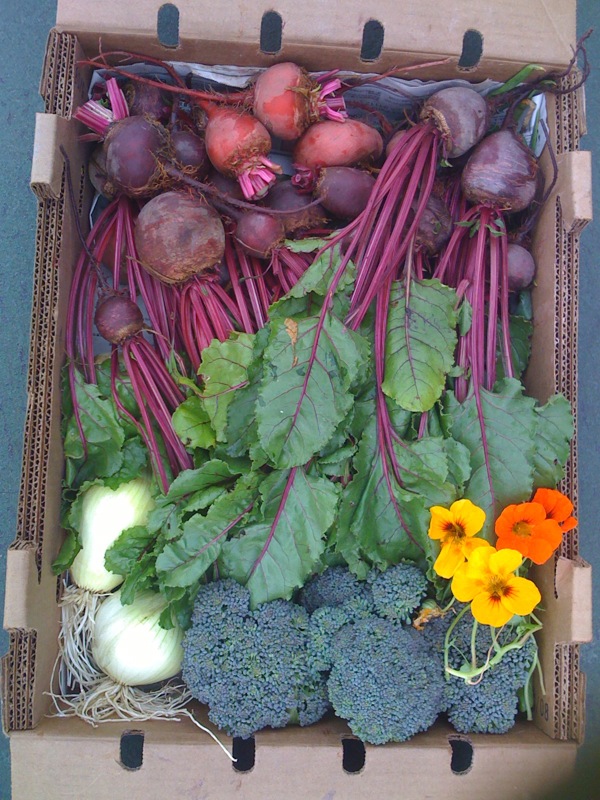 This year, Urban Sprouts implemented an online pre- and post-test survey questionnaire, student focus groups and key informant interviews. This data is currently being analyzed by Urban Sprouts’ Evaluation Specialist, Michelle M. Ratcliffe, Ph.D. We will share our results on our website as soon as they are complete.
This year, Urban Sprouts implemented an online pre- and post-test survey questionnaire, student focus groups and key informant interviews. This data is currently being analyzed by Urban Sprouts’ Evaluation Specialist, Michelle M. Ratcliffe, Ph.D. We will share our results on our website as soon as they are complete.Currently, we have results of Urban Sprouts’ program evaluation conducted by Dr. Ratcliffe from 2004 to 2006 in our middle school programs. We have exciting results to share. Urban Sprouts’ evaluation showed that the garden-based learning experiences:
- Influenced the school’s curricular, physical and social learning environments.
- Affected students’ environment-related skills and knowledge, and attitudes and preferences towards the environment.
- Provided opportunities for students to begin to make sense of the natural world and their relationship to it.
- Influenced students’ social and moral development including strengthening their resiliency traits of pride, patience, hard work, team work, and motivation.
- Influenced students’ willingness to try new foods, decreased their consumption of less nutritious foods, and increased their physical activity level.
- Participating students increased their preferences for a variety of vegetables, the variety of vegetables they eat and how often they eat them.






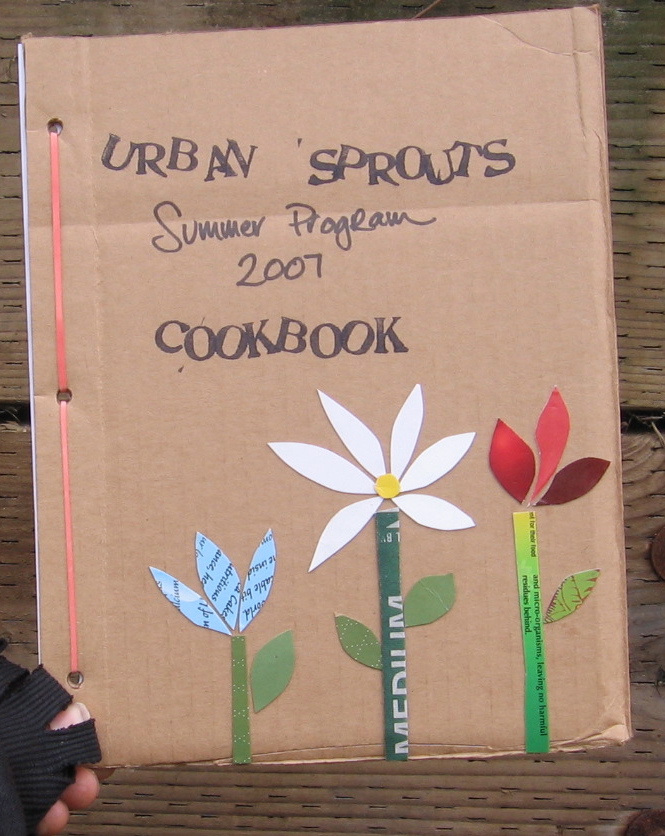


No comments:
Post a Comment